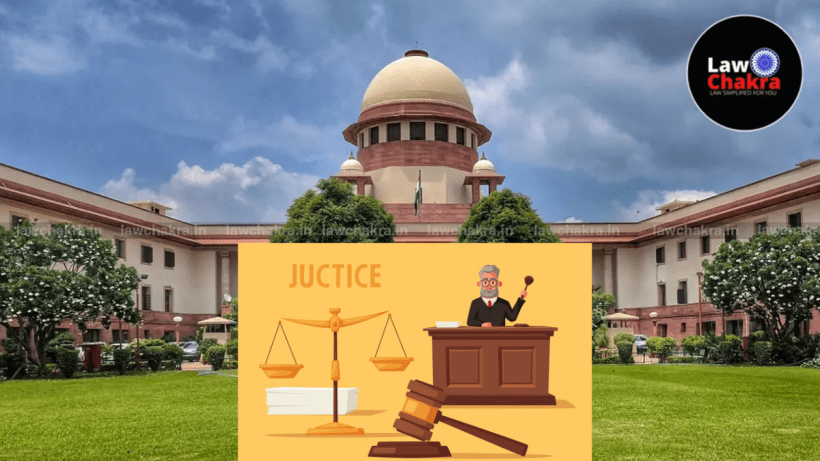Malicious Prosecution, Forced Retirement ! Supreme Court Grants Anticipatory Bail To Retired Nagaland Judge

Thank you for reading this post, don’t forget to subscribe!
Today, On 16th June, The Supreme Court granted anticipatory bail to a retired Nagaland judge who claimed he was maliciously prosecuted and forced to retire after raising questions about missing bail cash and irregularities involving Rs.14.35 lakh in sureties from 29 cases.

New Delhi: The Supreme Court granted anticipatory bail on Monday to a retired district judge from Nagaland who has claimed “malicious prosecution” and “forced retirement” after raising concerns about the cash surety system for bail in the Nagaland district judiciary.
This judge, who previously highlighted that the district judiciary in Nagaland does not deposit bail bond amounts or cash surety into the respective District Treasury, is currently facing allegations of misappropriating Rs.14.35 lakh in cash related to bail sureties while serving as the Principal and District Judge for Mon district.
Also Read: Gurugram Court Clash || Bar Association to Approach High Court Against Judge
A police complaint was filed against Inalo Zhimomi and two others by the current Principal and District Judge, alleging cash misappropriation. This followed Zhimomi’s assertion that he was forcibly removed from service by the state after a court order in Nagaland.
Zhimomi challenged this court order in the Gauhati High Court, which denied him interim relief without addressing the case’s merits. Subsequently, he approached the Supreme Court in response to the May 29 ruling.
Earlier, the Principal and District Judge for Dimapur had provided a written statement, as directed by the Gauhati High Court, indicating that Rs.14.35 lakh was missing cash deposited for sureties linked to pending criminal cases.
Unlike other states, Nagaland lacks a bail bond system; instead, cash must be deposited for sureties specified in bail orders. The missing funds refer to 29 cases recorded in 2024.
Zhimomi contends that when he served as Chief Judicial Magistrate in Kohima, he alerted the Gauhati High Court in September 2013 regarding this issue. In his petition to the Supreme Court, he described his forced retirement as “illegal” and accused the authorities of constitutional violations, particularly the registration of a criminal case without adhering to established procedures set by the Supreme Court in a 1991 ruling.
Also Read: FIR Against a Sitting Judge: Legal Provisions, Judicial Precedents & Inquiry Process
This ruling mandated prior consultation with the Chief Justice before initiating criminal actions against judicial officers.
He also claimed that disciplinary actions taken against him after retirement were inconsistent with the state’s Services (Discipline and Appeal) Rules.
Zhimomi argued that the missing cash reflects “systemic issues in Nagaland’s subordinate judiciary,” where bail amounts are not appropriately deposited.
He pointed out that the charges against him illustrate a “clear pattern of malicious prosecution,” evidenced by his suspension, compulsory retirement, subsequent disciplinary actions, and the criminal case against him for raising concerns about the cash surety system.
Also Read: Sloganeering Against Judge: Kerala High Court Closed Contempt Case Against Lawyer
He criticized the High Court for not examining the issues related to the deposit of bail money, which indicates that the administrative problems have not been adequately addressed.
At the conclusion of the hearing, the Supreme Court granted Zhimomi some relief, although the case will still be taken up by the High Court. He was represented by Advocate on Record Aditya Giri and Senior Counsel S Borgoahain.





